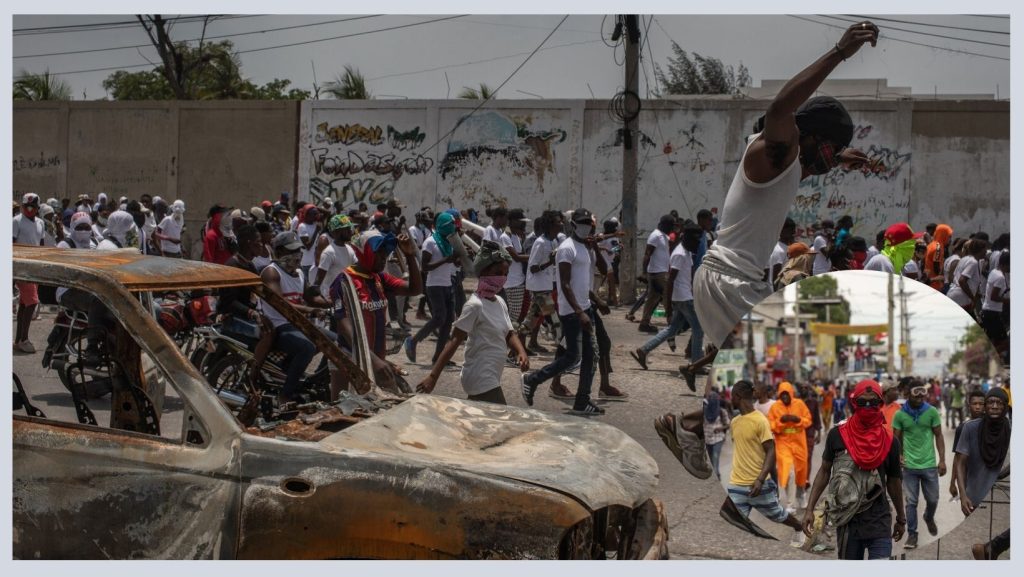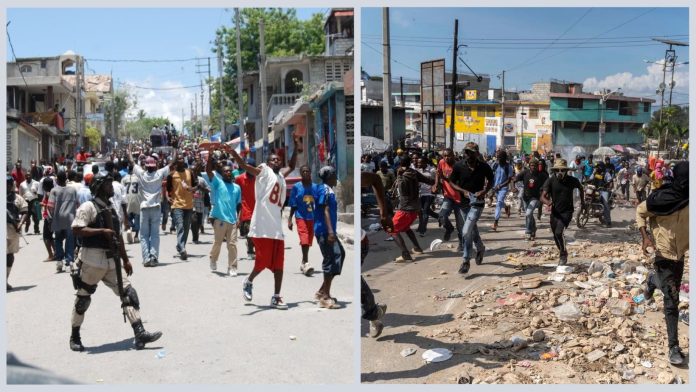The humanitarian crisis in Haiti has reached a critical juncture, with a significant rise in gang violence posing a grave concern. The UN Special Representative for Haiti reported to the UN Security Council that over 8,400 people fell victim to gang violence in Haiti last year, reflecting a staggering 122% increase from 2022. These incidents include killings, injuries, and kidnappings, indicating a deteriorating situation that has now reached alarming levels.
Volker Türk, the UN High Commissioner for Human Rights, issued a warning that the human rights situation in Haiti has further worsened due to the relentless and expanding gang violence. The month of January alone witnessed at least 806 non-participating individuals falling victim to violent gang conflicts, marking the bloodiest month in over two years. This figure, coupled with the deaths and injuries of approximately 300 gang members, brings the overall total to 1,108 people affected, surpassing three times the number recorded in January 2023. The daily casualties underscore the severity of the situation.

To address the escalating gang violence and ensure the safety of Haitians, the Multinational Security Support Mission in Haiti (MSS) has been called upon to support the National Police. The mission, authorized by the UN Security Council in October, is deemed crucial in maintaining security conditions that comply with international human rights norms and standards. Gangs continue to vie for control of territory in Haiti’s capital, Port-au-Prince, and have expanded their activities to areas outside the city, indicating the recent acquisition of new ammunition by some gangs.
The situation of children in Haiti is particularly alarming, with the UN human rights chief expressing concern over the 167 boys and girls killed and injured by gunfire last year. Some were executed by gangs or self-defense groups due to suspected support for rivals. The recruitment of children into gangs remains a significant concern, prompting the UN Children’s Fund (UNICEF) to call for the safeguarding of Haiti’s youngest citizens amid the ongoing unrest.
The humanitarian crisis in Haiti is further compounded by years of political turmoil, poverty, institutional and socioeconomic crises, disease outbreaks, increased rates of malnutrition, natural disasters, and escalating armed violence. Over three million children require humanitarian assistance, and the situation may deteriorate further, leading to more children in need. The unrest has already disrupted essential social services such as education, health, and protection, prompting a UNICEF official to urge all stakeholders to cease violence and prioritize the safe reopening and provision of essential social services for children.

Gangs persist in using sexual violence against women and girls as a weapon, spreading fear through local social media by sharing gruesome photos and videos of killed individuals and instances of rape. The growing and widespread insecurity has sparked anti-government street protests and civil unrest in at least 24 towns, supported by opposition political parties. In recent weeks, at least 16 people were killed and 29 injured, mainly in clashes between protesters and police.
The escalating humanitarian crisis in Haiti, marked by gang violence, sexual violence, and the deterioration of human rights, emphasizes the urgent need for international support and action to address the root causes of the conflict and protect the most vulnerable members of society.
What Actions Have Been Taken By The International Community To Address The Crisis In Haiti?
The international community’s approach to the crisis in Haiti reflects a combination of intra-Haiti dynamics, regional initiatives, and a reluctance to directly intervene. The December 21 agreement and the establishment of the Transition Council have been pivotal in addressing the crisis, but their effectiveness is hampered by the weakness of the Ariel Henry regime and its limited control over street dynamics. The visit by Assistant Secretary of State Brian Nichols to Haiti in early March concluded without significant outcomes, underscoring the fragility of the situation.
CARICOM, the Caribbean Community, has expressed interest in assisting in resolving Haiti’s crisis, with the recent summit in the Bahamas resulting in commitments to aid. This includes convening a meeting of stakeholders in Jamaica and engaging in discussions in Haiti with political and civil society leaders. Jamaican Prime Minister Andrew Holness’s visit to Haiti, accompanied by senior leaders from other CARICOM countries, indicates a willingness to contribute a Jamaican police and security contingent to a multinational operation in Haiti. However, CARICOM has not endorsed the UN Secretary General’s call for the deployment of an international security force to combat gangs, instead focusing on supporting the Haitian National Police.
The international response to Haiti’s crisis has lacked consensus, evident in high-level visits, special sessions at the United Nations, the Organization of American States (OAS), and CARICOM. Despite targeted sanctions against prominent Haitians and notorious gang leaders, there remains a significant gap between the international community’s response and Haiti’s pleas for assistance.
Hesitancy to directly intervene in Haiti’s crisis stems from various factors, including historical precedents of interventions with limited lasting positive outcomes, the current security situation in Haiti, and the absence of decisive U.S. leadership. U.S. ambivalence and a limited appetite for another direct international commitment of U.S. security capabilities have influenced actions taken by Washington and other key actors, including Canada, which has implemented targeted sanctions on a broader scale.
Despite challenges, there is lingering policy momentum in three overlapping arenas: the diplomacy of globally influential actors like the United States, Canada, France, the United Nations, and the OAS; the initiatives outlined in the December 21 agreement and the Montana Accord; and ongoing negotiations among Haiti’s politically divided factions. However, the outcome of the March 24 Ottawa Biden-Trudeau meeting was inconclusive, with the United States failing to convince Canada to lead a multinational security/stabilization force into Haiti. Canada, along with CARICOM, affirmed its focus on enhancing the capacity of the Haitian National Police.
The international community’s response to the crisis in Haiti underscores the complexities and challenges of addressing a deeply rooted and multifaceted crisis. The lack of consensus on how to respond, coupled with historical hesitations and the current security situation, has hindered effective support to Haiti.
Also Read: U.S. House Of Representatives Passes TikTok Ban Bill

